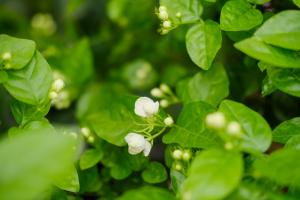Introduction
Fruits come in a wide range of shapes, colors, and flavors. They attract both animals and humans, providing a vital source of nutrition. But why do trees and plants produce fruits? In this article, we'll explore the reasons behind this natural phenomenon and how it benefits both the plant and the animals that consume them.
Seed Dispersal
One of the primary reasons why plants produce fruits is to ensure the spreading of their seeds. Inside each fruit is a seed or multiple seeds that are waiting to be dispersed and planted elsewhere. When animals consume the fruit, they digest the fleshy part of it, and the remaining seeds pass through their digestive system intact, to be planted in new locations. This process extends the reach of the plant and increases the chances of its offspring surviving and flourishing.
Protection
Fruits protect seeds from environmental threats, such as predators, temperature changes, and harsh weather conditions. The fleshy part of the fruit acts as a natural shield, preventing insects and other creatures from reaching the seeds within. Additionally, fruits typically contain high levels of antioxidants that protect the seeds from damage caused by exposure to sunlight and other environmental factors.
Nutrition
Fruits are a rich source of nutrients, including vitamins, minerals, and antioxidants. They provide nourishment to both animals and humans who consume them, serving as an excellent source of energy and nutrients. Fruits help maintain a balanced diet and contribute to a healthy lifestyle.
Reproduction
Fruits are directly linked to plant reproduction. The process of seed dispersal through fruit consumption ensures the plant's continuation into the next generation. By producing fruit, plants create new generations of offspring and help support the ecology in which they exist.
Conclusion
In summary, trees, and plants produce fruits to ensure the survival of their species. The fleshy parts of the fruit serve as a protective shield against environmental factors, while the seeds inside ensure the spread of the plant's offspring. Fruits serve as an essential source of nutrition and serve as a vital component in the natural cycle of life.

 how many times do yo...
how many times do yo... how many planted tre...
how many planted tre... how many pine trees ...
how many pine trees ... how many pecan trees...
how many pecan trees... how many plants comp...
how many plants comp... how many plants can ...
how many plants can ... how many plants and ...
how many plants and ... how many pepper plan...
how many pepper plan...































